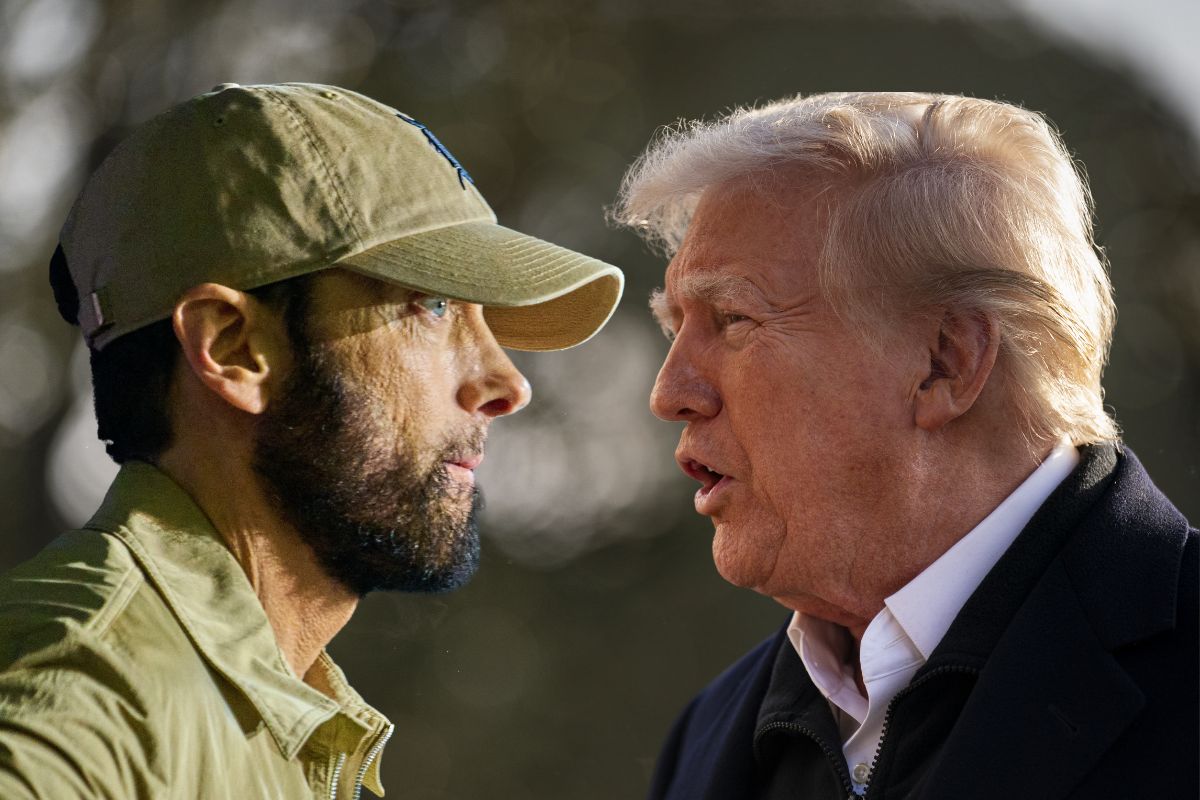President Donald Trump is relying on a “rapper defense” to dismiss allegations brought by Congress members in a lawsuit accusing him of inciting the January 6 Capitol riot.
The lawsuit, first filed in February 2021 by Rep. Bennie Thompson before he stepped away to lead the House January 6 Select Committee, alleges Trump and his followers violated parts of the Ku Klux Klan Act.
The act was originally passed in 1871 and was initially designed to protect federal officials from conspiracies aimed at obstructing their duties.
The lawsuit accused President Trump and far-right groups such as the Proud Boys and Oath Keepers of conspiring to prevent Congress from certifying the 2020 election through intimidation and violence.
Ten additional members of Congress later joined as plaintiffs, making the case a significant test of the Reconstruction-era law in a modern context.
After losing his initial bid to dismiss the case, where the Court ruled against his claim of presidential immunity, Trump is now challenging the ruling in the U.S. Court of Appeals for the D.C. Circuit.
In their appeal, Trump’s attorneys argue that his rally speech on January 6, 2021, protected political expression and likened it to rap artists’ controversial and often misunderstood lyrics.
“A rapper rockets to the top of the charts for his aggressive, provocative lyrics that become wildly popular nationwide, particularly among angsty teenagers. He is ranked as one of the most controversial lyricists of all time. Many of his lyrics describe explicit violent acts, including gun violence, rape, and a description of the rapper drowning his wife. While at times, the rapper’s lyrics suggest that his work is not intended to encourage or endorse actual violence, other lyrics suggest the contrary,” Shaw explained.
Shaw was drawing parallels between Trump’s rhetoric and the hypothetical scenario presented by rapper Eminem and his lyrics from his song “’97 Bonnie & Clyde.”
Em’s lyrics were used in a 2014 case against a Pennsylvania rapper named Tone Dougie, who was busted for writing a rap about killing his wife on Facebook.
He was convicted of making terroristic threats, but the Supreme Court, citing Eminem’s music, overturned the conviction in 2015.
The Court ruled that proving negligence wasn’t enough for a conviction under federal law, showing the uncertainty between artistic expression and free speech limits.
“Nothing in President Trump’s speech even came close to the far more incendiary language that the Supreme Court has held to be protected as a matter of law,” President Trump’s lawyer argued.
Trump’s lawyers specifically pointed to statements he made during the rally, such as urging his supporters to “peacefully and patriotically make your voices heard,” as evidence that his words did not constitute incitement.
“President Trump’s January 6 speech…is properly characterized as ‘strong protests against the government and prevailing social order’ – a context that demands the highest deference to speech and protection from censorship,” Shaw argued.
President Trump’s appeal also comes amid scrutiny of his use of presidential pardons for individuals involved in the January 6 riot.
On January 20, his first day back in office as the 47th President, Trump issued approximately 1,500 pardons for those charged in connection with the attack, fulfilling a key campaign promise.
His pardons, described as “full, complete, and unconditional,” extended to both violent and non-violent offenders, including individuals convicted of assaulting law enforcement officers.
The pardons also commuted the sentences of 14 high-profile figures, including leaders of extremist groups like the Proud Boys and Oath Keepers.
Enrique Tarrio, former leader of the Proud Boys who was serving a 22-year sentence for seditious conspiracy, was among those granted clemency.
Trump characterized the January 6 defendants as “hostages” and called for their immediate release, framing his actions as a stand against what he described as unjust prosecutions.
